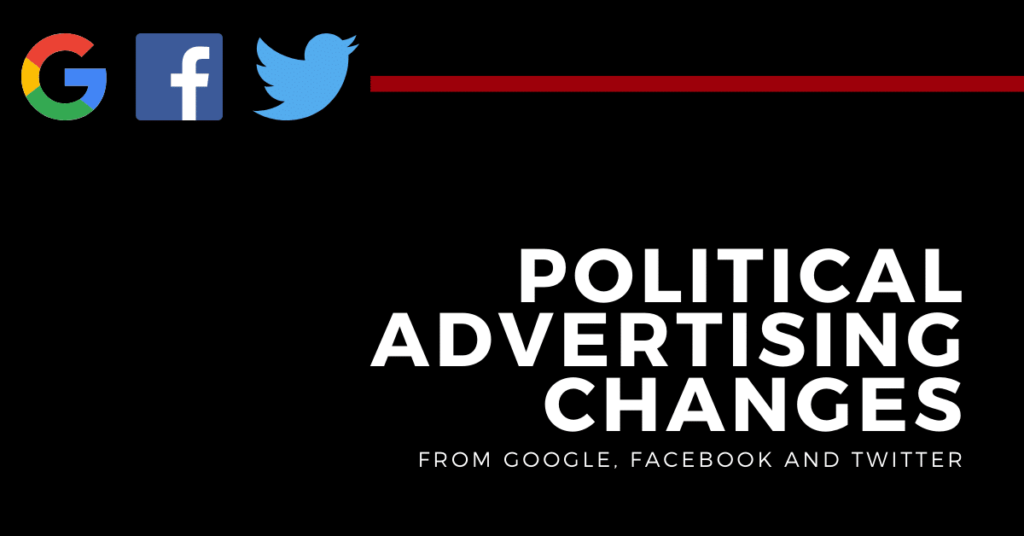In case you haven’t read this in the WSJ, Google, Facebook and Twitter are making changes to how political campaigns use these platforms for targeted digital advertising.
Fortunately, Raconteur is ahead of the curve, and none of these changes will hamper our efforts for our clients. We continue to deliver targeted ads to voters and donors to lock down votes, raise money and mobilize supporters.
Facts about Raconteur’s capabilities:
1. We identify, track and deliver ads to voters and donors without using these three networks. Like the presidential campaigns, we refresh our data daily.
2. We have a unified data system to deliver ads efficiently to voters and donors across the digital landscape and on Connected TV. This keeps our targeting very accurate and improves our efficiency.
3. We are experts in compliance on Facebook, Google, Twitter, and other networks. This is how we are confident that these changes won’t affect our clients.
Please make an appointment if you want to discuss this in more detail. I look forward to hearing from you.
Some other news on this:
Facebook Weighs Steps to Curb Narrowly Targeted Political Ads, Nov. 21
Tech firms are reversing a trend of offering ever-more precise tools that in some cases facilitated the spread of misinformation
Google to Restrict Political Ad Targeting on Its Platforms, Nov. 20
Advertisers will no longer be able to target political ads based on users’ interests inferred from browsing or search history
Here’s the good, the bad and the troubling.
The Good
These changes will keep bad actors out of elections.
– Misinformation campaigns will be a smaller be part of the 2020 cycle.
– This will also keep bad, ham-handed vendors out of elections. Those folks who say, “Oh yeah, we do digital” won’t be capable of running high-performing digital ads for your campaign. Google and Facebook are looking for agencies will a level of expertise and certifications that comes from experience on their platforms. These networks still will allow data for targeting, but just not in campaigns that have the hallmarks of amateurs or intentionally contrived. Again, these networks won’t judge the content of your ads. They’ll evaluate how the ads are done.
– Twitter has never been a valuable network for targeting voters with advertising. So nothing lost here.
The Bad
These changes can block legitimate advertising campaigns. Without smart planning and execution, the ads on Google and Facebook can sit in a holding pattern.
The Troubling
Digital advertising is still a frontier in political campaigning, and it has given many a share of voice that had been expensive to acquire. Google, Facebook and Twitter are curtailing innovation. They are treating campaigns differently than corporations, nonprofits and other organizations that target their advertising.
I hope this is good information for you. Please make an appointment if you want to discuss this in more detail. I look forward to hearing from you.
